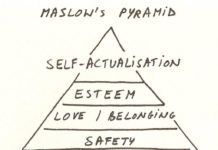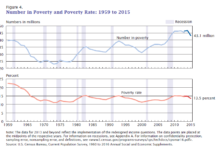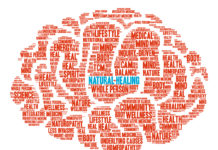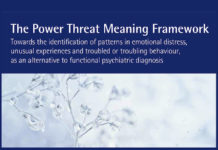Researcher Acknowledges His Mistakes in Understanding Schizophrenia
Sir Robin Murray, a professor at the Institute of Psychiatry, Psychology, and Neuroscience in London, states that he ignored social factors that contribute to ‘schizophrenia’ for too long. He also reports that he neglected the negative effects antipsychotic medication has on the brain.
Psychologist Debunks Common Misconceptions of Maslow’s Hierarchy
Utilizing Maslow’s published books and essays, psychologist William Compton delineates common myths and attempts to respond to them.
New Data on the Adverse Effects of Meditation and Mindfulness
Study reports on the less-examined findings of difficult and painful meditation-related experiences.
United Nations Statement Criticizes Medicalization of Depression on World Health Day
"There is a need of a shift in investments in mental health, from focusing on 'chemical imbalances' to focusing on 'power imbalances' and inequalities"
Psychiatric Retraumatization: A Conversation About Trauma and Madness in Mental Health Services
As a clinical psychologist and someone who was herself “diagnosed” and “treated” for “serious mental illness,” Noël Hunter has a unique vantage point to view the mental health profession. I spoke with her about her new book, which offers an insightful critique of mental health’s diagnostic and treatment irrationalities.
Electroshocking Veterans and Their Fetuses
I have long been concerned with the way society responds to people who come back from war. Veterans are routinely funneled into psychiatry’s grasp. Over the decades, some people who fought in wars have shared with me their experiences of being psychiatrized upon return from war. Sometimes these experiences included veterans being stripped of their second amendment rights, and a host of other constitutional, civil, and human rights violations as they began to be forced into complying with psychiatric regimens, and on several occasions this included veterans being subjected to electroshock.
Psychotherapy is Less Effective and Less Accessible for Those in Poverty
A special issue explores the connection between poverty, mental health, and psychotherapy.
Targeting Hypocrisy Reduces Islamophobia and Collective Blame of Muslims
Interventions calling attention to participants’ hypocrisy proved effective in reducing Islamophobia and collective blame of Muslims for individual acts of violence.
Building a Bridge to Hope
Hope heals. Thousand of years of experience and, more recently, numerous hope studies, prove this to be true. Yet hope is still a 4-letter word in many mental health settings. How can we build a bridge to hope from hope-stealing physical and emotional pain, hopeless diagnoses and prognoses, and hope-numbing side effects?
Reimagining Healthcare
The conventional Western classification systems of health conditions are based on flawed science shaped by reductionist, hierarchical, and profit-driven ideologies. THEN wants to create a new paradigm built upon principles drawn from systems science, the life course perspective, developmental neurobiology, and other evidence-informed studies.
Victim Blaming: Childhood Trauma, Mental Illness & Diagnostic Distractions?
Why, despite the fact that the vast majority of people diagnosed with a mental illness have suffered from some form of childhood trauma, is it still so difficult to talk about? Why, despite the enormous amount of research about the impact of trauma on the brain and subsequent effect on behaviour, does there seem to be such an extraordinary refusal for the implication of this research to change attitudes towards those who are mentally ill? Why, when our program and others like it have shown people can heal from the effects of trauma, are so many people left with the self-blame and the feeling they will never get better that my colleague writes about below?
Intensive Care Patients at High Risk for PTSD, Psychiatric Symptoms
People who survive life-threatening illnesses in the intensive care unit (ICU) of a hospital are at high risk for depression and anxiety and nearly...
Study Finds Parents Need More Support to Identify PTSD in Children
A new study, published in The Journal of Clinical Psychiatry, investigates the presence of posttraumatic stress symptomatology in children involved in motor vehicle collisions...
A Critique of Genetic Research on Schizophrenia – Expensive Castles in the Air
In the light of the much trumpeted claims that recent research has identified genes for schizophrenia, it is important to review the track record of this type of endeavor. Despite thousands of studies costing millions of dollars, and endless predictions that the genetics of schizophrenia would shortly be revealed, the field has so far failed to identify any genes that substantially increase the risk of developing schizophrenia.
Similarity of Dissociation and Voice-Hearing in DID and Schizophrenia
A study of 40 patients with schizophrenia diagnoses and 40 patients with dissociative identity disorder (DID) found that "neither phenomenological definitions of dissociation nor...
The Real Myth of the Schizophrenogenic Mother
Acknowledging the role of trauma inflicted by a given individual’s mother is not the same as laying all blame for “mental illness” at the feet of motherhood. Meanwhile, a mountain of evidence has accumulated linking schizophrenia to sexual, physical, and emotional abuse and many other categories of adverse childhood experiences.
Racism Linked to Poor Health Outcomes in Children
New study finds children who have been exposed to discrimination show higher likelihood of anxiety, depression, and ADHD.
Experiences of Depression Connected to Declining Sense of Purpose
In-depth interviews find that those who screened positive for depression did not explain their experience in terms of diagnostic symptoms.
Study Investigates Long-Term Effects of Social and Emotional Learning Programs
Social and Emotional Learning (SEL) programs have gained popularity in U.S. schools in recent years. A new study examines the nature and longevity of their impact on students.
Agency and Activism as Protective Factors for Children in the Gaza Strip
Researchers recommend a ‘politically-informed focus', including activism, when assessing children and designing interventions in areas of chronic political violence.
Racial Discrimination a Clear Contributor to Youth Mental Health Disparities
Greater perceptions of discrimination during adolescence are linked to more depressive and internalizing symptoms.
The Power Threat Meaning Framework One Year On
The team that developed the Power Threat Meaning framework as a diagnostic alternative reflects on the response to the framework after one year.
How Western Psychiatry Harms Alternative Understandings of Mental Health
An anthropological look at the Global Mental Health (GMH) movement suggests several ethical problems and contradictions in its mission.
The Dopamine Hypothesis of Schizophrenia – Version III
The Division of Clinical Psychology of the British Psychological Society published a paper titled Understanding Psychosis and Schizophrenia. The central theme of the paper is that the condition known as psychosis is better understood as a response to adverse life events rather than as a symptom of neurological pathology. The paper was wide-ranging and insightful and, predictably, drew support from most of us on this side of the issue and criticism from psychiatry. Section 12 of the paper is headed "Medication" and under the subheading "Key Points" you'll find this quote: "[Antipsychotic] drugs appear to have a general rather than a specific effect: there is little evidence that they are correcting an underlying biochemical abnormality."
Chosen Name Use in Transgender Youth Linked to Reduced Depression and Suicide
The ability of transgender youth to use their chosen name is connected to reduced depressive symptoms and suicidal thoughts/behaviors.



























